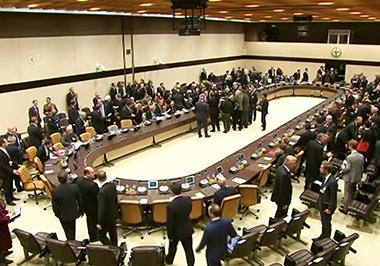As government prepares to attend the Brussels Summit in October, figures presented by Afghanistan Investment Support Agency (AISA) indicates that investments have dropped considerably in Afghanistan since the establishment of the National Unity Government (NUG) in 2014.
AISA officials said there has been a 26 percent fall in registration of new companies for investment during this period.
Figures out by AISA reveal that at least $1 billion USD was invested in the country over the past two years while according to the organization, this amount was over $2.2 billion USD during the same period under the previous government.
AISA information also shows that investment in Afghanistan's mining industry has experienced a 77 percent decrease, construction sector has witnessed 57 percent fall while energy and water sector has seen a 54 percent reduction over the past two years under the NUG.
AISA's investment support director Masihullah Fakhri said that a lack of political and economic stability as well as insecurity have affected investments in Afghanistan.
"The level of commitment is very much lower than that made in 2013 and 2014. This is all because of a high level of instability in the country," Fakhri added.
It is said that problems in tax collections, increase in taxes, corruption in public office among other problems have also hampered investment in the country.
Abdul Ali, a businessman, who wants to cancel his business license, said he has lost a huge amount of his capital over the past two years and that he wants to withdraw his investment in Afghanistan.
"We face lots of problems. We have to deal with lots of challenges. We are not left calm to do our business," Ali said.
Meanwhile, the deputy head of Afghanistan Chamber of Commerce and Industries (ACCI) Khanjan Alokozay said they are optimistic about a number of activities by government to improve investment in the country, but insecurity and problems inside the state have made investors concerned about continuing their activities.
"Problems are numerous. Now, the main problem is that government does not address problems from a single source. We are mostly affected by political problems," he added.
The national development strategy, which will be presented at the Brussels Summit, will focus on attracting and supporting investment in various sectors in Afghanistan.



Comment this post